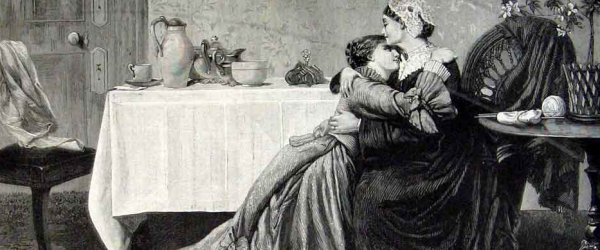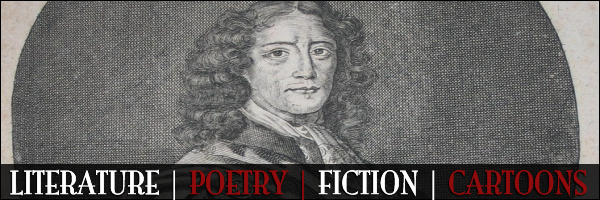
Fiction – Mother
Fiction, LiteratureShe was, although I never saw it in her, a beautiful woman. My father loved her and stayed by her, although he was never monogamous. I loved her, as all children love their mothers. But she was always just a bit cold, a bit distant, and a bit withholding. She worked hard, kept busy, and if she had any emotional depth, I never knew it.
In the generation that produced the girls who burned their bras and went to Woodstock, she was conventional and unimaginative. She never seemed to know what to do with the wildly insecure and sensitive child that I was. I must have sensed my adored father’s wandering eye, and I manifested my insecurity by worrying about everything. I had phobias about mental illness, cancer, and the atomic bomb. I had stomachaches and chronic respiratory problems. I read hundreds of books, brooded about things, and bit my nails. Mom had her hands full.
She came from an immigrant family. My grandparents arrived from Czechoslovakia as teenagers. The English language was never spoken fluently, and my Mother learned it as a first grader. She didn’t share much about her childhood, but I knew enough: her father was ruthless. He expected his three children to excel in music. My mother was the least talented, and her father apparently made that very clear to her and the family. She grew up keeping her emotions to herself, standing tall while quaking on the inside, and she stayed safe by being strong. I grew up fearing my grandfather, who softened little in his old age.
I know now that Mom was probably never comfortable in the maternal role. I think she would have made a wonderful accountant or secretary. She was highly organized. She had a creative streak, which she expressed by making delicious meals, baking, and mastering craft after craft. She made afghans, silk Christmas decorations, hand sewn Barbie clothes, and assorted candles and embroidered dish towels. She loved flower arranging and decorating the house.
She was a wonderful nurse. My fondest memories are from when I was sick. She insisted on staying with me in the hospital when I had my tonsils out, even though that was unheard of in the fifties. She sat with me when I had the flu, and bought me Ginger Ale.
But on a daily basis, something was missing. Her lap was available very seldom, and hugs were meted out. She was uncomfortable with any physical demonstrations, and when I embraced her, she stiffened. “That’s enough of THAT,” she would declare, “I have too much to do.” She addressed my myriad worries by telling me that unless
I “stopped all this foolishness,” she would call a psychiatrist. So I learned to keep my worries to myself. And I longed for warmth from her.
She was selfish. She got her way. My father did her bidding in most things, probably out of a sense of guilt. He never made it a secret that other women found him attractive, and though we didn’t speak of it, Mom, my sister, and I knew. At some level, I was always worried that my adored father might leave us.
So as time passed, Mom got more militant, more self protective, and less giving. As her daughter, I felt her pulling away. Was it her way of asserting her worth to us and to my father? Gifts were rejected. Promises were made and broken.
As she became colder, I stepped up my efforts to please. One Christmas, I bought her what I thought was the perfect gift: a sewing machine. Hers was an old Singer with no attachments. I got her a new one with a slew of nifty accessories. I thought she would be thrilled and excited. Instead, she called and said she didn’t want it and was sending it back to me.
I continued my quest for Mom’s love and good graces, but nothing seemed to work. More gifts were rejected. Trips to visit us were cancelled. She stopped giving us gifts at holidays, instead sending me a check with the note “get yourself and the kids something, and say it’s from me.”
Dad was always the warm and loving parent, and I adored him, in spite of the hurt he doled out with every infidelity. When he died, my mother grew more strident in her rejections, extending them to friends and neighbors as well as to me. My sister escaped most of my Mom’s negative behavior. Mom seemed to lean on her, and the two of them got closer as Mom and I diverged.
There was guilt. Was I a bad child? Did I do something wrong that caused Mom to reject me so much? What could I do to win her over? I continued to try, and Mom continued to slap me down. Years went by. My children grew up.
About seven years ago, I opened a letter from my Mom. In her usual brusque fashion, she was writing to tell me that she had decided not to leave me anything in her will, “because you don’t need it.” Nothing else. It was the final rejection. Although she was not wealthy, and I truly did not need any money, I felt that Mom was finally revealing her complete indifference.
I divorced her that day. I saw her a few more times, but there were no more phone calls, no more letters, and no more gifts.
She lapsed into dementia soon after that, and I was spared any further unpleasantness. I felt much guilt about my defection, but I remained steadfast in my decision to give her up. My sister stepped into the breach and cared for her until Mom died.
I think about this as I reflect on my own career as a mother. I may have overcompensated by hugging my girls too much. I never wanted either of them to feel one second of rejection. I wonder if they knew just how much I wanted them to love me.
I still wish that I had discovered the key to my Mom’s heart. I kept all the afghans, the Christmas decorations, and there is one dish towel that I never used, but put away in a drawer for safekeeping.
There will always be a hole where my Mother should have been.























